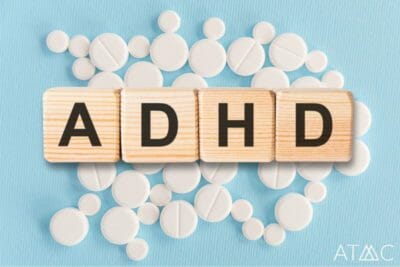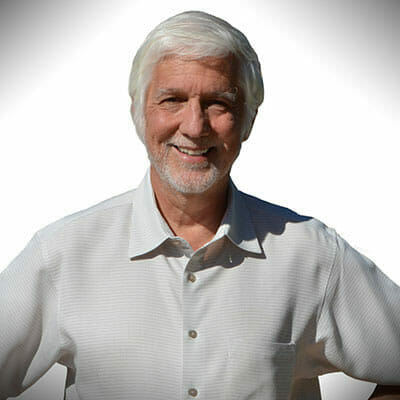Last Updated on September 6, 2022 by
Alternative to Meds Editorial Team
Medically Reviewed by Dr Michael Loes MD
Table of Contents:
Finding the right information to make an informed decision about your child diagnosed with attention deficit and hyperactivity disorder, or ADHD, can be perplexing. For years, traditional practitioners have been advocating for the use of ADHD medication treatment to curb the behavioral aspects of the condition. However, as with any other prescription-based protocol, there are risks and side effects in treating childhood ADHD with medications.
For any parent who lives the daily challenges with a child who has ADHD, what are the options in treatment?
What Is ADHD?
Before it was common to prescribe ADHD medications as treatment for the disorder, children were affectionately labeled as having high energy, enthusiasm, or excitability. Once prescriptions became an accepted practice in treating the condition (though not in our minds), youngsters who exhibited these traits were readily diagnosed ADHD and given drugs to circumvent the behaviors. But unfortunately, some children were being misdiagnosed when, in fact, bipolar disorder was the prevailing issue.
ADHD is a neurodevelopmental disorder that most frequently occurs in children, though it can present or escalate into adulthood. Beyond the “terrible twos,” children with ADHD have heightened expressions of anxiety, physical activity, and overall impulsivity, generally seen between 4 to 17 years of age.
Symptoms of ADHD
Your son may be the class clown but it doesn’t mean he’s happy about it. Your daughter may get overly excited about a thought, a person, or action and moves about excessively, without considering the element of personal space and boundaries. Young athletes panic at the thought of being grounded from play by a parent for misbehaving, saying that “If I can’t play, I’ll die.” For a child with ADHD who cannot release their excess energy, it can feel like a fatal circumstance.
Childhood ADHD shows up as:
- Inability to focus on a task
- Inability to focus on anything they have no interest in
- Impulsive behavior
- Uncontrollable need for physical movement
Often, children with ADHD experience difficulties functioning in a school environment. ADHD can hamper the ability to hear direction, process it, and follow through. Left untreated, teenagers with ADHD will suffer scholastically having difficulty with completing homework, taking tests, and maintaining relationships.
The Risks of ADHD Medication Treatments for Children

So how is it that the typical treatment regimen for childhood ADHD is to introduce the use of medication dependency early on?
Careful consideration must be given to each child in assessing their behavioral health. By adding drugs to their chemical makeup before discovering the true underlying cause of their behaviors, this off-handed fix by prescription is like going down a rabbit hole, unnecessarily. Alternative to Meds Center knows that parents and their children deserve better.
Commonly Prescribed Medications and Side Effects
Many doctors prescribe a stimulant to address the effects of ADHD, a practice that works to diminish ADHD tendencies in nearly 7 of 10 patients. Currently, there are two classes of stimulants used to treat ADHD:
Amphetamines, such as Adderall, ProCentra, and Dexedrine. These drugs come in both short- and extended-release formulas.
Side effects include:
- Irritability and agitation
- Headache
- Dizziness
- Fear and anxiety
- Constipation and stomach pain
- Tremors
- Nausea and vomiting
- Fever
- Increased heart rate, blood pressure, and palpitations
Methylphenidates, such as Ritalin, Concerta, and Focalin. These drugs come in both short-acting and extended-release formulas.
Side effects include:
- Anxiety
- Insomnia
- Stomach pain
- Poor appetite and weight loss
- Nausea and vomiting
- Increased heart rate and blood pressure
- Numbness and tingling in hands and feet
No matter the drug prescribed, the goal is to reach the optimal dose before the teenage years, when the best dose will likely remain constant for the teen’s lifetime. Though the numbers of success are certainly not an exact science, 20 percent do not respond to stimulant treatments for ADHD at all, necessitating an alternative solution. And for those children and young adults who do find some measure of efficacy, they are constantly monitored, and what works one year may have to change, based on the body’s natural changes during growth and development.
We offer more sustainable, healthy alternatives.
Natural Alternatives to ADHD Medication Treatments
Although most professionals diagnosing ADHD recommend natural methods such as changes to diet, attention to exercise, and alternative behavior management to address the symptoms of ADHD, most prescribe medications as well. Studies show that nearly 70 percent of children with ADHD also have coexisting conditions that could affect how they respond to any medication prescribed.
As a result, more and more parents and physicians are considering natural alternatives to pharmaceutical medications. Alternative therapies such as participation in yoga and tai chi promote endorphin boosts that may be more beneficial than pharmaceutical medication. Studies have shown that teens who participated in such holistic therapies had a reduced tendency to feel anxious and act out in situations that normally promoted irritability.
Biofeedback Treatment
Neuropathy, such as EEG biofeedback that measures brain waves in response to stimuli, can help patients build better responses to certain situations. Children and teens observe their responses to normal stressors experienced in the school and home environment, and adjust their responses as they see their levels of agitation rise. Similarly, behavioral therapy produces positive results in how children and teens react to common school and home environments.
Acupuncture
By treating the sources of anxiety and irritability, ADHD symptomology can be greatly reduced. Acupuncture has proven an effective way to treat these young patients. As a result, many experience a reduction in their need to act out behaviorally or physically. In particular, acupuncture can help address the symptoms of withdrawal from ADHD medications, especially in teens.
ADHD Medication Withdrawal
The long-lasting effects of stimulant use to treat ADHD remain unclear and how medication affects one child will differ from another. Medicine is known as a practice. Because every child has a specific set of biological, neurological, emotional, and environmental factors that contribute to their singular makeup, medication and its risks will affect them just as individually.
If you have a child or teenager presently using any of the aforementioned ADHD medication treatments and want to begin the process of removing this approach to their care, consult your doctor first.
Medication withdrawal will include physical and behavioral symptoms and is best done with medical supervision and a proper medication tapering program in place, rather than a “cold-turkey” approach. Withdrawals occur due to the drop in dopamine experienced once stimulants are gradually removed from the system.
ADHD stimulant drug withdrawals can cause:
- Depression
- Irritability
- Insomnia
- Fatigue
- Nausea and vomiting
- Stomach cramps
As with any long-term drug use, withdrawal symptoms can appear within one to two days of medication cessation and present as mild or severe. We recommend medical intervention or alternative therapies to help deal with ADHD medication withdrawal symptoms as some patients may experience thoughts of suicide.*
Rethinking the Way We Treat Childhood ADHD
Thanks to science, research, and better communication between children, teens, their parents, and medical practitioners, we know more today about ADHD than in years past. Between the side effects, dosage adjustments, and withdrawal symptoms associated with ADHD medication treatments, parents are wise to consider natural therapies instead of defaulting to prescription trials with their children.
A child with ADHD most likely has at least one parent with the disorder. Involve your child as much as possible in any decision regarding his or her treatment. As a parent, include yourself in your child’s treatment journey. For example, volunteer to have your own biofeedback session at the same time as your child’s session. It will help remove their fear and provide a shared experience. Their enthusiasm and your active participation in any remedy can improve the chances for a positive outcome.
As always, consult your physician regarding any alternative therapy, particularly before ceasing use of a prescription medication.
Ask Us How Healthy Alternatives to ADHD Medication Treatment Help








